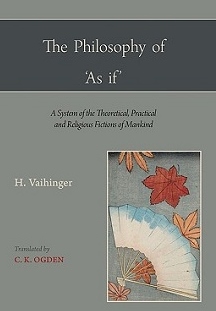 Edit article
Edit articleSeries
Post-Liberalism and "As If" Beliefs

(“וזאת התורה אשר שם משה לפני בני ישראל על פי ה’ ביד משה” (דברים ד’ מ”ד, במדבר ד’ ל”ז”
Scholarly debate continues to this day regarding the extent to which Wittgenstein himself was a “non-realist” in matters of religion (i.e., the extent to which he regarded religious discourse as expressive rather than fact-stating).[1] It may well be (as I myself intend to argue further on) that the very distinction between realism and non-realism in a religious context is misleading and inappropriate.[2] But to the degree that Wittgenstein’s post-liberal disciples free religious discourse from any closely defined propositional function, their narrative approach to Scripture easily joins forces with a broader interest on the part of various contemporary philosophers in highlighting the place of “as if” beliefs in all aspects of our cognitive activity.[3]

Appreciating the role of “as if” beliefs has become particularly interesting in our day, given recent revolutionary developments in the philosophy of science, which suggest that, even in the “hard” sciences, key concepts can be considered convenient fictions. Contrary to what many non-scientists tend to assume, it is now pointed out that even such partial truths as protons and electrons, waves of light, gravity as distortions of space, are not things that anyone has seen or proven to exist. Nevertheless, because they are useful constructs that work for the moment, we employ them “as if” they were true.
In a scientific context, the primary function of “as if” beliefs is to help us organize our everyday reality in such a way that guides and contributes to the way we conduct our practical day to day living. In a religious context, the distinctive interpretations of the past which narrative renditions promote come to foster a cultural-linguistic picture which illuminates this practical life and infuses it with more profound “meaning”.[4] When enveloped in mythic trappings linking them to metaphysical forces, such beliefs generate a stock of suggestive images and associations that tacitly direct the way we experience and deal with the more spiritually challenging aspects of human existence (e.g., birth, aging, death, interpersonal relations, suffering and unforeseen calamities).
At times, these beliefs serve to preserve our sense of wonder and awareness of the mysterious boundary conditions of human experience that exceed rational comprehension. At other times, they function more politically, structuring verbal or non-verbal behaviors that define the community of the faithful and establish group membership. On this view, profession of belief in Torah from Heaven is part of a vocabulary of religious identity.[5] It is a “rule of thumb” with which to approach the world in company with one’s co-religionists, rather than a fully informed judgment about history or theology, serving – among other functions – as a signal that the speaker is a bona fide member of the group.
Indeed, as Sam Lebens (chairperson of the virtual Association for the Philosophy of Judaism and currently affiliated with new Center for Philosophy of Religion at Rutgers University) suggests, sometimes it is precisely the strangeness of the professed “belief” or the costliness of the non-verbal behavior it engenders that renders the signal strong and hence a credible sign of allegiance.[6]
Post-liberals would deny that draining religious belief of firm propositional content in this fashion is to be equated with “Orthopraxy” – a term often used pejoratively, when referring to conformity of religious practice without any assumption of its doctrinal underpinnings. The doctrinal claims of religion are, on their view, best understood as fidelity to a certain vision or way of looking at the world. Rather than conveying metaphysical or spiritual truths or ways of behaving that are correct in and of themselves, their importance lies in providing the visual images, vocabulary, and skills that allow us to think about such questions and with directives for conducting our lives in accordance with these thoughts.
TheTorah.com is a 501(c)(3) nonprofit organization.
We rely on the support of readers like you. Please support us.
Published
March 25, 2014
|
Last Updated
March 18, 2025
Previous in the Series
Next in the Series
Before you continue...
Thank you to all our readers who offered their year-end support.
Please help TheTorah.com get off to a strong start in 2025.
Footnotes

Prof. Tamar Ross is Professor Emeritus of the Department of Jewish philosophy at Bar Ilan University. She continues to teach at Midreshet Lindenbaum. She did her Ph.D. at the Hebrew University and served as a post-doctoral fellow at the Center for Jewish Studies at Harvard. She is the author of Expanding the Palace of Torah: Orthodoxy and Feminism. Her areas of expertise include: concepts of God, revelation, religious epistemology, philosophy of halacha, the Musar movement, and the thought of Rabbi A.I. Kook.
Essays on Related Topics:









